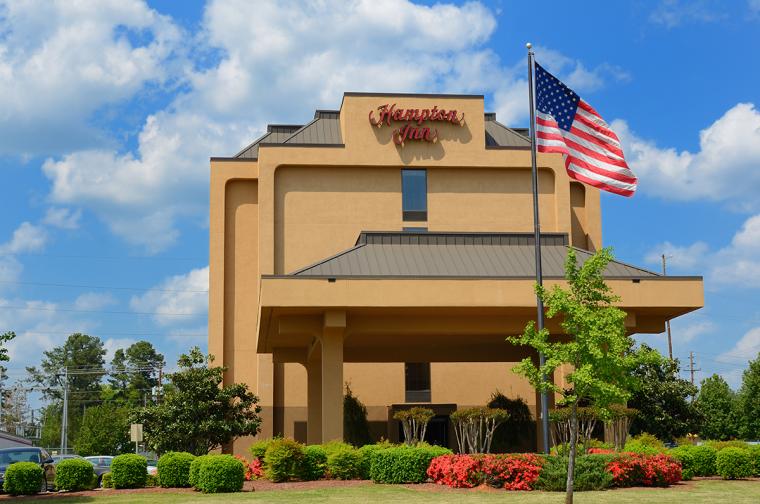

While it’s impossible to provide a full education in hotel negotiations in just one article, we can start with a few important points. One is that you already have an advantage coming into these arrangements: You know your athlete demographic. You know who they are (including their ages and their basic socioeconomic background), how they travel (meaning whether they are coming alone, with friends or with their families), their preferences for rooms (they might want properties with multiple beds and pull-out sofas) and their priorities (maybe they want hotels with pools or perhaps they want to be near amusement parks or restaurants). As well, you are aware of how much they’re willing to spend, an incredibly important consideration.
What else do you know? You know the tournament schedule. If the tournament is set up in an elimination format, your room block will decrease as the time goes on, and if the tournament is set up in pool play, team hotel stays are likely to be longer. You know whether you will be needing rooms for meetings or banquets or pizza parties. You know whether officials will be needed (and if you want to cover their rooms if they’re not local, that provision should be built into your agreement with any hotels). You also know where your competition venue is, so you know you need hotels near that. You know whether you’ll be using a stay-to-play policy or allowing registrants to use any accommodations they want.
In other words, you know quite a bit! Maybe what you don’t know is what’s out there in the hotel industry, so here’s a quick rundown. While all events are different, we’ve found that generally, the youth and amateur sports market likes properties that are seen as sports-friendly, the mid-range hotels. A mid-range hotel is just what it sounds like: something right in the middle of the price point, with enough amenities to create a comfortable stay.

Some properties offer further conveniences, such as restaurants or bars. If you know something is going to be important to the people who register for your tournament, make sure you ask about it in advance. Just because one property offers a breakfast, for example, does not mean the one next door does. However, if breakfast is not offered, you may be able to negotiate with the hotel management to have a continental breakfast catered in a private room before your teams head out for the day.
Besides the typically requested two-queen-bed hotel rooms which are most popular for sports teams, mid-range hotels can also offer suite-type accommodations, often with a sofa bed. These are high demand options with families traveling together, or with groups of friends who are sharing rooms to help control expenses. They also offer a number of business conveniences such as plenty of outlets for everyone to plug in their devices and a work surface for those who want it. Refrigerators and microwaves may also be offered, along with in-room coffeemakers.
There are plenty of other types of hotels on the market, and depending upon the room rate, guests will get more services, or fewer. (A top of the line hotel, for example, might offer room service, dry cleaning/laundry services and valet parking. An economy or budget hotel generally won’t have any of this.)
Something we’re glad to see is an increase in the construction of these mid-range properties. They have become very popular with group travel, particularly youth sports, and the market has responded accordingly. Many of the older hotels (even brands we once associated with economy and budget travel) are being renovated and upgraded to fit the mid-range model as well. Having more properties (and more similar properties), particularly in cities that host youth sports events, allows you to keep the herd together, as we like to say.
Of course, there still are some of the older properties on the market, the ones you might call roadside inns or motels, with doors that open to the outside, but we’ve seen a decrease in their popularity with youth tournaments. Parents traveling with their children don’t like them, and prefer buildings with interior walls, elevators and more modern amenities.
Beyond the types of accommodations out there, what should you know? The importance of reserving early, for one thing. Even if you’re making plans for a tournament a few years in advance, you’ll want to get your housing settled right away. It’s always possible, for example, that a large convention or other event will unknowingly make arrangements to be in town the same time you are, and the room supply will be very limited by the time you get around to discussing room blocks. Or it might be that a property you wanted as your headquarters hotel is going to undergo renovations at the time of your event, or that the person who was your contact, and who had made some preliminary arrangements with you, has since left – and nobody remembers that you made any plans. In other words, a lot can happen and the more advance planning you can do, the better off you are.
Additionally, it is good to acquaint yourself with the city that will host your event. You will want to find out which hotels are near your venue, and which are in your price range. You’ll also want to weed out any properties that won’t work, such as those in less desirable areas of the city, where parents won’t want their children to stay. The local sports commission or convention and visitor’s bureau may be able to provide some guidance here.
If, after reading through this, you decide you’re not quite ready to dive into the world of hotel negotiations, there are options for you. Working with a housing company will let you hand over the process of negotiations, room blocks and everything else, and allow you to get back to managing the tournament. An experienced vendor will take the time to find out all about your event (including all those things we mentioned at the beginning of this article) and will come up with a list of suitable hotels within a reasonable proximity of your competition venue.
Because a good housing company will have a history of working in that city, its personnel will be able to leverage room rates and can negotiate with the hotels to get complimentary rooms needed to house officials or others. They should be able to generate a map that shows where the hotels are in relation to the competition site so that your athletes can visualize the area on the tournament booking engine.
A housing vendor can create a portal for your website that registrants can use to make hotel reservations. In addition, they should be able to give you access to automated pick-up reports throughout the reservation process and can handle any last-minute problems that might come up with regard to accommodations.
Regardless of whether you use a housing company, your best business practices should include advance planning, good communication and familiarizing yourself with the city in advance, as well as reaching out to the local sports commission or CVB. Start this work as soon as you have decided upon your host city and you will be on your way to a successful tournament. SDM

